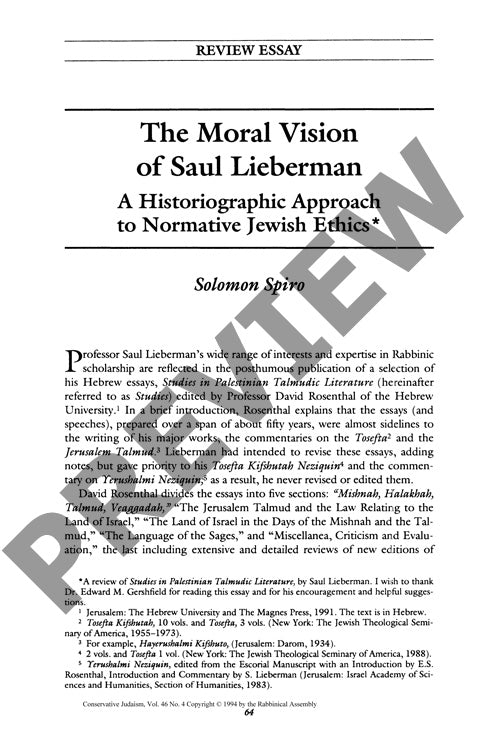The Moral Vision of Saul Lieberman a His
Couldn't load pickup availability
Saul Lieberman's moral vision, deeply shaped by his early education in Musar philosophy at Slobodka and Novorodok Yeshivot, fundamentally transformed modern understanding of Talmudic scholarship. His posthumous collection "Studies in Palestinian Talmudic Literature," edited by David Rosenthal, reveals how character formation and ethical development were inseparable from rigorous textual analysis in his work. Through historiographic analysis of Lieberman's Hebrew essays spanning fifty years, particularly his treatment of usury laws and accounts of rabbinic martyrdom during Hadrianic persecutions, a consistent pattern emerges: Lieberman systematically refuted Enlightenment-era dismissals of Talmudic discourse as mere academic exercises, demonstrating instead how the Rabbis engaged substantively with concrete political, economic, and social realities. His comparative analysis of Jewish and Christian martyrdom accounts, supported by Greek and Roman sources, establishes reliable historical criteria for distinguishing authentic contemporary records from later literary embellishments. Ultimately, Lieberman's scholarship articulates a coherent ethical theory rooted in concepts of integrity, faithfulness, and opposition to hypocrisy, positioning Rabbinic tradition as sufficiently dynamic to address contemporary moral challenges while maintaining historical authenticity and intellectual rigor.

More Information
-
Physical Description
-
Publication Information
Published 1994
ISBN
-
Publication Credits
Solomon Spiro

